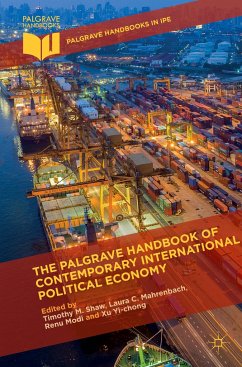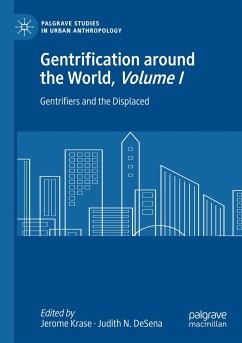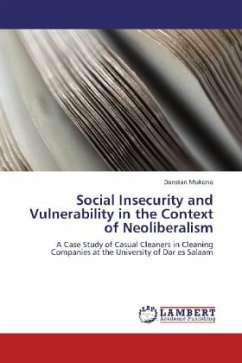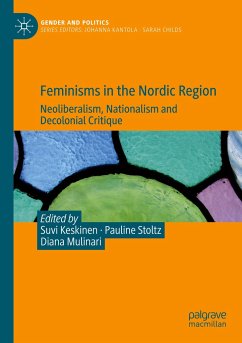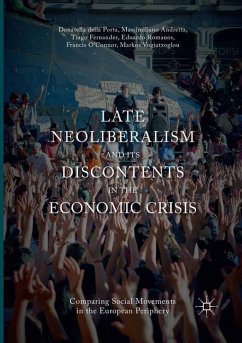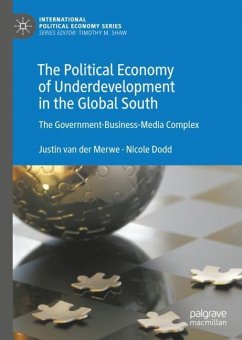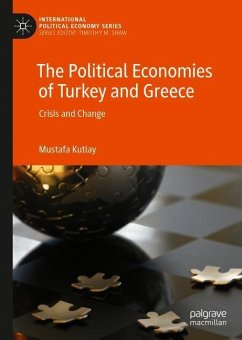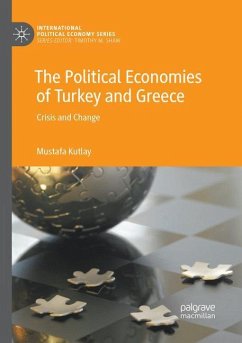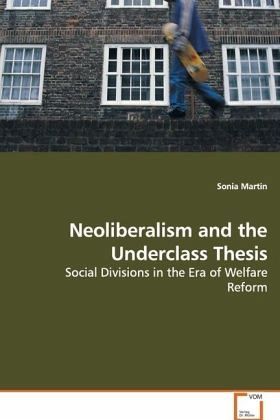
Neoliberalism and the Underclass Thesis
Social Divisions in the Era of Welfare Reform
Versandkostenfrei!
Versandfertig in 6-10 Tagen
52,99 €
inkl. MwSt.

PAYBACK Punkte
26 °P sammeln!
Adaptation of social policy to the ideas and philosophies of a socially conservative neoliberalism during the last quarter of the 20th century has led to new and emerging social divisions legitimised by contentious assumptions about human behaviour. Some welfare recipients are considered behaviourally and/or morally deficient, crystallised in conservative accounts of an 'underclass'.This book is a critical analysis of social divisions in the context of a neoliberal policy environment. The period under study is 1980 to 2005, with focussed attention on Australian social policies under the Howard...
Adaptation of social policy to the ideas and
philosophies of a socially conservative
neoliberalism during the last quarter of the 20th
century has led to new and emerging social divisions
legitimised by contentious assumptions about human
behaviour. Some welfare recipients are considered
behaviourally and/or morally deficient, crystallised in conservative accounts of an 'underclass'.
This book is a critical analysis of social divisions
in the context of a neoliberal policy environment.
The period under study is 1980 to 2005, with
focussed attention on Australian social policies
under the Howard-led socially conservative liberal
government post-1996. Guided by critical social
theory, the analysis draws on data on social
divisions, policy records, and field interviews,
that shows contemporary social policy is informed by
contentious assumptions about human behaviour, and
subsequently converted into corresponding welfare
practice.
The findings are an important contribution to
theoretical debates about social policy and the
underclass phenomenon, and have strategic
implications for future policy directions.
philosophies of a socially conservative
neoliberalism during the last quarter of the 20th
century has led to new and emerging social divisions
legitimised by contentious assumptions about human
behaviour. Some welfare recipients are considered
behaviourally and/or morally deficient, crystallised in conservative accounts of an 'underclass'.
This book is a critical analysis of social divisions
in the context of a neoliberal policy environment.
The period under study is 1980 to 2005, with
focussed attention on Australian social policies
under the Howard-led socially conservative liberal
government post-1996. Guided by critical social
theory, the analysis draws on data on social
divisions, policy records, and field interviews,
that shows contemporary social policy is informed by
contentious assumptions about human behaviour, and
subsequently converted into corresponding welfare
practice.
The findings are an important contribution to
theoretical debates about social policy and the
underclass phenomenon, and have strategic
implications for future policy directions.




